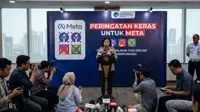BBC banned from filming wildlife in India for 5 years
28 Feb 2017
Stung by a BBC documentary questioning India's aggressive wildlife protection measures at Kaziranga National Park in Assam, the National Tiger Conservation Authority (NTCA) that governs all tiger reserves in the country has imposed a ban on the network and its journalist Justin Rowlatt for five years.
The documentary by Rowlatt, BBC's South Asia correspondent, titled One World: Killing for Conservation on Kaziranga's rhino conservation methods came in for sharp criticism from the Union environment ministry for being "grossly erroneous".
The documentary claims forest guards in Kaziranga have been given powers to shoot and kill anyone they think is a threat to rhinos.
In a memorandum issued on Monday evening, NTCA said BBC had failed to submit the documentary to the ministries of environment and forests and external affairs for obligatory previewing "in order to remove any deviations, so as to achieve a balanced and accurate exposition of the theme".
It has asked chief wildlife wardens of all tiger range states and field directors of tiger reserves to disallow filming permission to BBC for five years.
Alleging ''breach of trust'' by Rowlatt during the shoot of the documentary, the NTCA has also advised the external affairs ministry to revoke visa issued to Rowlatt and his crew, besides ''taking appropriate action to prevent their further entry into India, for a period of not less than five years''.
Further, NTCA has recommended that the environment ministry's wildlife wing disallow BBC from filming in any protected areas of the country for five years.
The action against BBC and its correspondent comes two weeks after NTCA served it a show-cause notice for allegedly portraying Kaziranga's policy of shooting poachers in an extremely negative light.
The NTCA notice said the BBC provided a false synopsis on its filming plan with ''surreptitious malintent of obtaining permission from relevant authorities''.
''The producer has used spasmodic events as an umbrella to judge a gamut of conservation efforts that go into safeguarding our wildlife heritage, with scant understanding of the laws in place. The immunity provided to forest officials under section 197, of the Criminal Procedure Code has been construed as a 'shoot to kill' policy.''
In his defence, Rowlatt told NTCA on 14 February that there was no attempt to deceive anyone during the filming and that BBC did not refer to the park's conservation strategy as ''shoot to kill'' at any time. He added that as a professional journalist, he was obliged to find out more about the circumstances of the deaths (killing of suspected poachers).
''It quickly became clear that Kaziranga's policing of poaching is a matter of intense debate both in the communities around the park and within the conservation movement more generally,'' said Rowlatt.
He also said that despite desiring to reflect the official position on use of armed force in Kaziranga, union environment minister Anil Dave, Assam environment minister Pramila Rani Brahma, NTCA head B S Bonal and Assam's Principal Chief Conservator of Forests Bikash Brahma did not respond to interview requests.


















